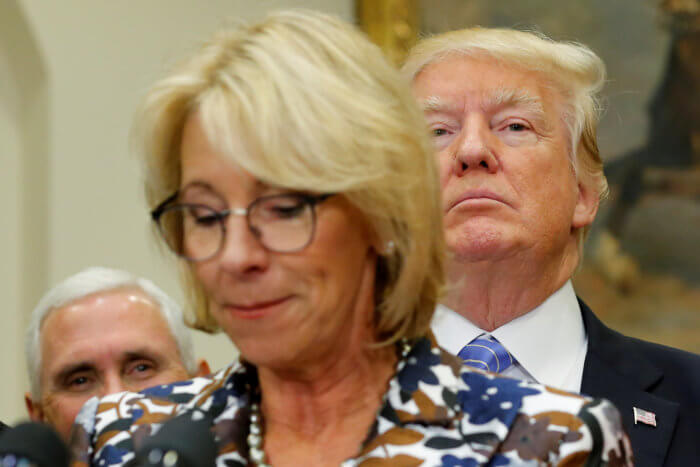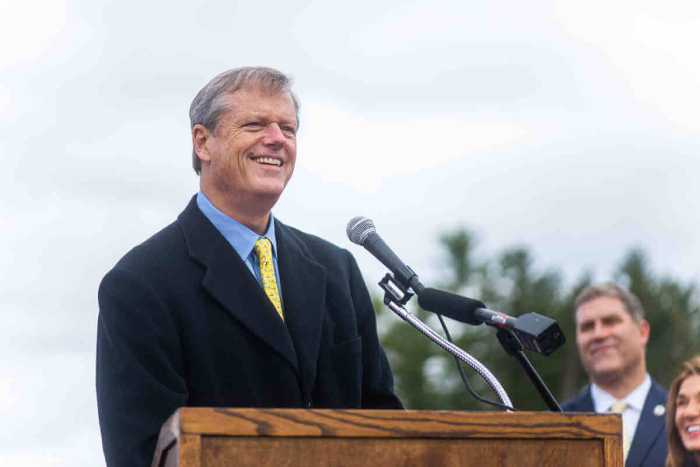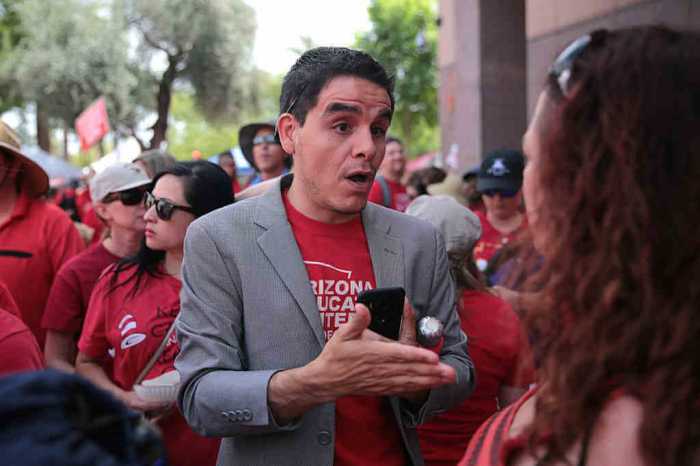Franklin Pierce University (FPU) in New Hampshire is reversing its own 2018 policy that allowed transgender women to participate on women’s sports teams in the face of invasive oversight from the Trump administration prompted by a complaint by a far-right, anti-LGBTQ organization.
The school two years ago implemented a policy opening the way for transgender women to participate on women’s teams, but only with the stipulation that they had completed a year of testosterone-suppression treatment (the sort of prying oversight that has sparked criticism and legal battles on the international stage when used to target South Africa Olympic track star Caster Semenya, who is widely assumed, without substantiation, of being intersex).
But after one of the school’s transgender student-athletes, CeCé Telfer, went on to win a national title in the 2019 Division II women’s NCAA Track and Field Championships, FPU became the target of the religious right’s discriminatory focus on sidelining such athletes from the playing field altogether in the name of women’s rights.
Facing lawsuit from far-right evangelical group, pressure from Betsy DeVos, school agrees to gut inclusive policy
Concerned Women for America, an evangelical Christian group that opposes LGBTQ rights — and uses dehumanizing language to refer to transgender individuals — filed a civil rights complaint with the Department of Education, according to the New Hampshire Union Leader, prompting the DOE’s Office for Civil Rights (OCR) to determine that the school’s policy is in violation of Title IX, the landmark 1972 law banning sex discrimination in federally-funded academic and athletic programs.
The controversy blew up after Republicans and religious conservatives had already taken aim at trans-inclusive sports policies in another New England state, Connecticut, where the anti-LGBTQ Alliance Defending Freedom and the Trump administration have sought to undercut the Connecticut Interscholastic Athletic Conference’s policy allowing trans student-athletes to participate in accordance with their gender identity.
The New Hampshire Interscholastic Athletic Association, in contrast, leaves trans student-athlete eligibility up to individual school districts.
According to the Union Leader, a bill that would have banned trans girls and women from participating on women’s sports teams in the state drew testimony earlier this year from an attorney from Republican State Attorney General Gordon MacDonald’s office, who warned that such legislation would violate the state’s anti-discrimination laws. That legislative effort subsequently failed.
Despite the kinds of conclusions being made at the state level in places like New Hampshire and Connecticut, the Trump administration has barreled forward with a campaign to weaponize Title IX against transgender student-athletes under the guise of gender equality in athletics.
In announcing its policy reversal, FPU specifically cited federal law, but has also indicated that the change was driven by pressure from the Trump administration.
“Franklin Pierce University regrets that we must remove our previously published Transgender Participation and Inclusion Policy,” the school notes on its website’s complianace page. “We remain committed to an inclusive environment for all of our students while also complying with federal law. Franklin Pierce University and the Department of Athletics will continue to support all students and student-athletes.”
Schools that allow transgender student-athletes to participate in accordance with their gender identity have been placed on high alert in response to recent aggressive actions from the administration in Washington. Trump’s team is threatening to withhold federal funding for racial desegregation efforts in Connecticut if schools there do not fall in line and swiftly ban transgender student-athletes from sports teams. In June, the DOE determined that the Connecticut policy amounted to a violation of Title IX under a transphobic argument that the presence of trans women in women’s sports discriminates against cisgender females.
In a press release regarding the FPU policy reversal, CWA linked to a document outlining a resolution agreement under which the university agreed to comply with a series of actions in response to the Title IX complaint.
Among the points in that resolution agreement, which was signed by FPU president Kim Mooney, the university pledged to rescind its transgender inclusion policy by October 2 of this year and to provide DOE with documentation showing it will not utilize the rescinded policy during the 2020-21 academic school year. The required documentation includes “any memoranda, correspondence, agenda, minutes, webpages, and/ or electronic communication reflecting the University’s compliance with this provision,” according to the agreement.
DOE civil rights officials also “may visit the University, interview staff and students, and request such additional reports or data as are necessary for OCR to determine whether the University has fulfilled the terms and obligations of the resolution agreement,” the agreement further states.

The language of the agreement is premised on the false narrative that cisgender girls and women who are student-athletes face a disadvantage by the mere presence of trans women on their teams. The document warns the school to “not exclude from participation in, deny the benefits of, treat differently, or otherwise discriminate against female students in any intercollegiate athletics offered by the university” — though, of course, it mandates discrimination against transgender females.
When reached by phone, Doreen Denny, CWA vice president of government relations, misgendered transgender women and maintained that cisgender women face a “disadvantage” when competing against “someone with clear physiological advantages.” Even with FPU’s policy requiring the testosterone-suppressing treatment, Denny argued — without evidence, “there is research that proves hormone treatment therapy does not mitigate the advantage” of trans student-athletes.
She further said Telfer’s championship victory “punctuated” that disadvantage.
“We believe biological males should not compete in female sports,” Denny said.
After this reporter then asked how transgender student-athletes would be able to play sports under the system envisioned by CWA, Denny said, “Well, we have sports competitions that aren’t based on sex, but for sports thare are going to be sex-specific… we’re talking about a federal civil rights law put in place in 1972 that made it clear equal opportunity and benefits would be based on sex.”
In a statement emailed to Gay City News, FPU emphasized its commitment to “an inclusive evironment for all of its students” and made clear it made its policy change under pressure.
“We regret that we were required to rescind the Transgender Participation and Inclusion Policy we adopted and put forward based on the NCAA’s model, but have made this move to comply with a resolution agreement with the US Department of Education’s Office for Civil Rights,” the statement read. “While we disagree with the position that the federal administration has taken with respect to trans-inclusive athletics participation, the Office for Civil Rights confirmed in its resolution letter (sent to us on October 16, 2020) that the provisions within our policy were consistent with the NCAA’s Policy on Transgender Student-Athlete Participation, which was promulgated in 2011. We will continue to work with the Northeast-10 Conference and the NCAA on this important issue.”
To sign up for the Gay City News email newsletter, visit gaycitynews.com/newsletter.





































